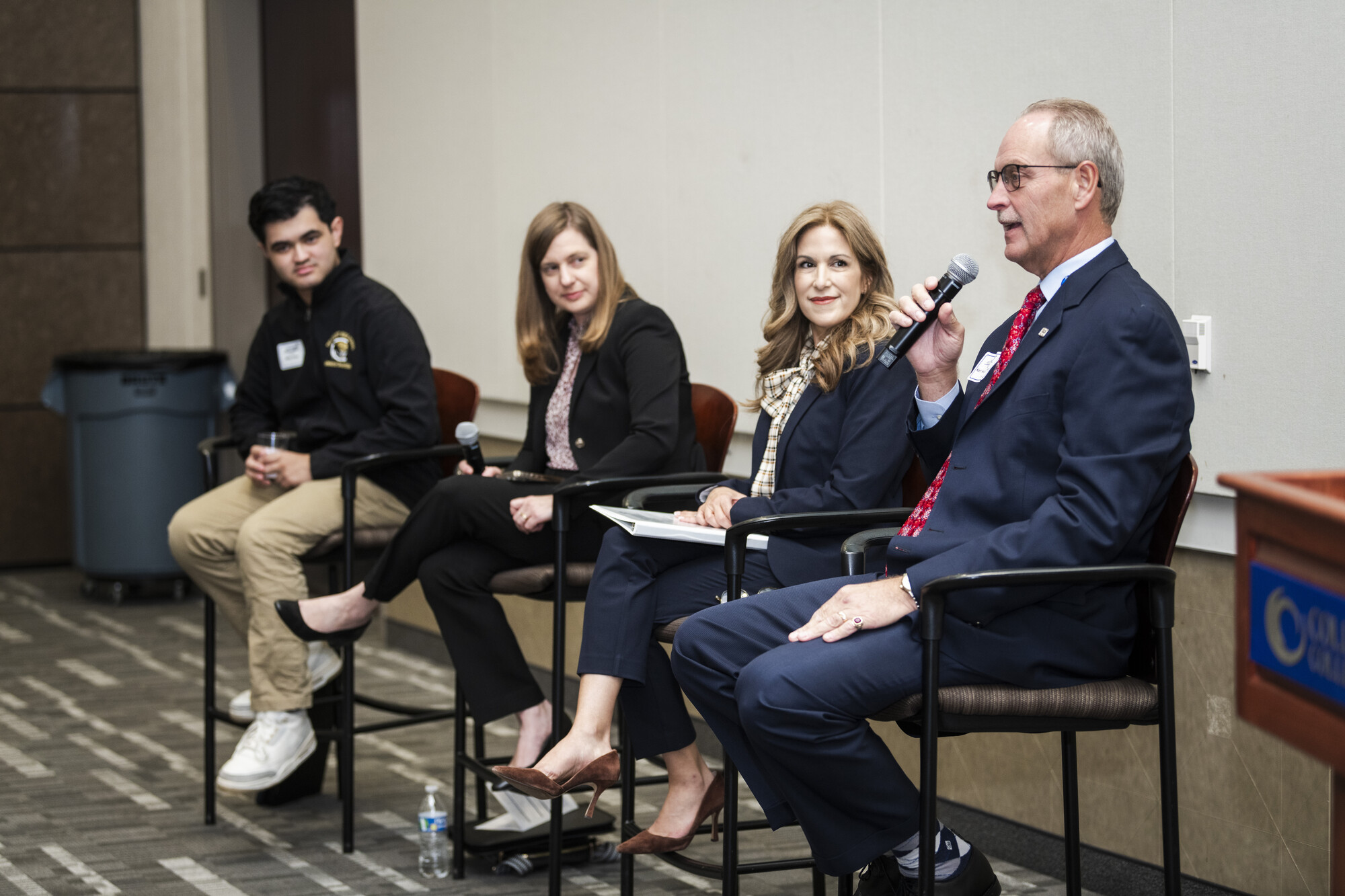How collegiate academies contribute to a stronger workforce
December 03, 2024
Cougar News

The panel discussion “The Why Behind Collegiate Academies” touched on the value of collegiate academies, including how they set high school students up for success and help build a stronger workforce. The four-person panel was moderated by Dr. Reo D. Pruiett, chief program and engagement officer for Communities Foundation of Texas.
The academies serve as a school within a school, giving students the opportunity to
receive a college education while also enjoying a traditional four-year high school
experience.
Lewisville ISD partnered with Collin College to launch the Collegiate Academy at The
Colony High School in 2016. One of the key pieces that makes the academy special is
that students are supported by Collin instructors as well as The Colony High School
staff, said Superintendent Dr. Lori Rapp.
Lewisville ISD student Riley Gove knows firsthand about the benefits of collegiate
academies. Gove will graduate with an associate degree in May.
“Through the collegiate academy I've met some of the most impactful people in my life,”
he said, noting the lifelong friends and mentors he has gained.
Plano ISD Superintendent Dr. Theresa Williams said the district’s new collegiate academy
was modeled after Lewisville ISD’s partnership with Collin. Plano ISD also has a health
sciences academy, where students can earn certifications or associate degrees through
the district’s partnership with Collin.
“This is a great way for students who want to become doctors to shave off two years
in high school,” Williams said.
Ken Hutchenrider, CEO of Methodist Richardson Medical Center echoed that sentiment,
adding collegiate academies help students identify early on whether they want to go
into healthcare.
“We're going to need more students who become physicians, nurses, techs, you name
it, and we need them desperately,” he said. “This accelerates students into the programs,
into becoming a very strong workforce. The biggest positive as well is that we don't
have attrition because they know what they're getting into.”
Gove emphasized the value collegiate academies provide in expanding students’ boundaries
and giving them the opportunity to interact with peers from different backgrounds,
which ultimately helps prepare them for life at a larger institution.
“I learned in my freshman year of high school, rather than freshman year of college,
how to adapt, how to build relationships with people that I didn't know, from backgrounds
that I didn't understand, and how to become friends and network in a truly beneficial
way,” he said. “I'm so thankful I learned young, because it's going to make the next
couple of years, going into college, moving to a new city, that much easier.”
The academies also give graduates an advantage in the workforce, Hutchenrider said.
“The ones who go through the academies are so much better prepared than those who
do not,” he said. “They know how to communicate. They know how to interact. They know
how to ask the questions.”
Back to Newsroom
